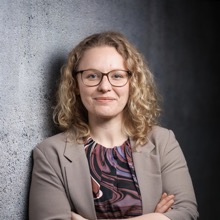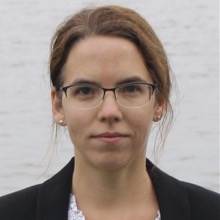WI2023 – Track: Smart Cities & Digital Government
Track description
Public administration is particularly bound by law and justice and bases its actions on values such as transparency, trust and sustainability, among others. However, global social crises such as climate change and Corona are putting more and more pressure on public administrations. Digitalization opens up opportunities to strengthen societal values and has the potential to address societal challenges, but at the same time poses an enormous challenge for administrations. A lack of resources and competencies poses problems for public administrations, as do ethical issues. In this context, the smart city is gaining particular importance, as the EU mission for climate-neutral and intelligent cities also shows. The shift toward smart, connected cities goes beyond the mere digitization of services and aims at a more efficient, ecological and socially inclusive city. This development also intensifies the debate around potentials and applications, but also limitations of digital trends such as data-driven governance, blockchain and AI in the public sector. Monitoring, analysis, and decision-making rely on big, integrated data from multiple sources. The collaboration of different actors – local and cross-sector – is a prerequisite for rapid e-government progress. Open government also includes external actors with diverse backgrounds. Co-production, co-creation and collaborations include citizens, businesses, NGOs and other administrative units at all levels and across borders. Against this backdrop, administrations must always balance the benefits of digital trends against privacy, security, and general ethical considerations.
The aim of the track is to present and further develop current and innovative research on the thematic complex of “Smart Cities & Digital Government” from different disciplinary approaches and research methodological perspectives. Therefore, this track focuses on research at the intersection of public administration, society and digitalization and addresses researchers in business informatics, administrative informatics and science as well as related disciplines.
Track Topics
Therefore, we particularly, but not exclusively, welcome interdisciplinary contributions on the following topics:
- Data-Driven Government
- Open Data and Open Government
- Smart Government & Smart Governance
- Smart Cities: Projects, Platforms and Applications
- Effects of Smart Cities
- Liveability & Quality of Life in Smart Cities
- Smart Cities & Smart Regions
- Digital Sovereignty & Trust Management
- Reception and application of digitization trends (e.g., blockchain, RPA, AI, public service automation)
- Transformative effects of digitalization in the public sector
- Transformational Government & Innovation Management
- E-Government strategies
- Online access law: implementation, potentials, problems
- E-Government and the Corona crisis
- ICT use, acceptance, benchmarking and acceptance management in the public sector
- Digital skills & education in the public sector
Track Chairs

Dr. Bettina Distel
Westfälische Wilhelms-Universität Münster, bettina.distel@ercis.uni-muenster.de
Dr. Bettina Distel is Assistant Professor at the Department of Information Systems at the University of Münster, where she received her PhD in 2018. Her work is concerned with public sector digitalization and focusses on the human factor of the digital transformation process, addressing both the citizens’ and the administration’s perspective. Her second major research topic focusses on trust, especially in the context of public administrations and technology use. Bettina Distel is member of the National E-Government Competence Center (NEGZ) and member of the Competence Center E-Government of the European Research Center for Information Systems (ERCIS).

Prof. Dr. Moreen Heine
Universität zu Lübeck, heine@imis.uni-luebeck.de
Moreen Heine is a professor of e-government and open data ecosystems at the University of Lübeck and scientific director of the Joint eGov and Open Data Innovation Lab. Previously, she was a junior professor of information systems, especially electronic government, at the University of Potsdam. She conducts research on human-centred and process-oriented applications in the public sector. Moreen Heine is involved in the board of the National E-Government Competence Centre (NEGZ).

Prof. Dr. Nils Urbach
Frankfurt UAS & Fraunhofer FIT, nils.urbach@fim-rc.de
Nils Urbach is a professor of information systems, digital business and mobility, and director of the Research Lab for Digital Innovation & Transformation (ditlab) at the Frankfurt University of Applied Sciences as well as deputy director of the FIM Research Center and the Fraunhofer Project Group Business & Information Systems Engineering. For several years he has been working in the research fields of digitalization and strategic IT management. His work has been published in leading academic journals such as the Journal of Strategic Information Systems (JSIS), Journal of Information Technology (JIT), MIS Quarterly Executive (MISQE) and Business & Information Systems Engineering (BISE), as well as in the proceedings of key international conferences.
Associate Editors
- Frederik Ahlemann, Uni Duisburg-Essen
- Katharina Ebner, Fernuni Hagen
- Christian Djeffal, TU München
- Constantin Houy, Universität des Saarlandes
- Ingo Kregel, FH Dortmund
- Peter Kuhn, fortiss GmbH
- Thomas Lampoltshammer, Donau-Universität Krems
- Basanta Thapa, Fraunhofer Fokus
- Ralf Plattfaut, FH Südwestfalen
- Michael Räckers, Universität Münster
- Lisa Schmidthuber, WU Wien
- Hendrik Scholta, Universität Münster
